Uneven development progress is leaving the poorest behind, deepening inequality and fueling political polarization on a global scale, creating a dangerous impasse that needs urgent action, according to a new report released today by the United Nations Development Programme (UNDP).
The Human Development Report (HDR) 2023/24, titled “Breaking the Deadlock: Reimagining Cooperation in a Polarized World ,” reveals a worrying trend: an incomplete and uneven recovery in the global Human Development Index (HDI) – a summary measure reflecting a country’s total GDP, Gross National Income (GNI) per capita, educational attainment and life expectancy.
The HDI is forecast to reach a record high in 2023 after falling sharply in 2020 and 2021. However, progress is highly uneven, with rich countries enjoying record levels of human development while half of the world’s poorest countries remain below pre-crisis levels.
Vietnam's HDI value in 2022 is 0.726, ranking 107th out of 193 countries and territories. From 1990 to 2022, Vietnam's HDI value changed from 0.492 to 0.726, an increase of nearly 50%. In the 1990s when UNDP introduced the HDI human development index, Vietnam was relatively low in the rankings, but now Vietnam is in the middle of the rankings and has been making continuous progress over the past 30 years.

UNDP Resident Representative Ramla Khalidi.
“Viet Nam has remained a high human development country throughout the difficult years of the COVID-19 pandemic. Human development remains central to the country’s development strategy and we have seen remarkable results over the past decades,” said UNDP Resident Representative Ramla Khalidi. Viet Nam ranks 91 out of 166 countries on the Gender Inequality Index, which looks at inequality in three dimensions: reproductive health, empowerment and the labour market. “Viet Nam has done well in some areas, such as accessto education and labour force participation, however, a gendered division of labour persists, with more stable, well-paid jobs reserved for men and women still underrepresented in leadership roles in the Government, the National Assembly and the private sector,” she said.
Global inequality is compounded by huge economic concentration. The report says that nearly 40% of global merchandise trade is concentrated in three or fewer countries; and in 2021, the market capitalization of the world’s three largest tech companies exceeded the gross domestic product (GDP) of more than 90% of the world’s countries.

Head of the United Nations Development Programme Achim Steiner.
“The widening human development gap highlighted in the report shows that the trend of declining inequality between rich and poor countries over the past two decades is now reversing. While our global society is highly interconnected, we are falling short. We need to capitalize on our interdependence and our capacity to address common challenges while ensuring that people’s aspirations are met,” said Achim Steiner, head of the United Nations Development Programme (UNDP). “This impasse is costing significant human lives. The lack of concerted action on climate change, digitalization, or poverty and inequality not only hinders human development, it also exacerbates polarization and further erodes trust in people and institutions around the world.”
The report highlights that deglobalization is neither feasible nor realistic in today’s world, and that economic interdependence remains high. This suggests that no region is close to achieving self-sufficiency, with all regions importing 25% or more of at least one major good or service from other regions.
The report also highlights how global interdependence is being restructured and calls for a new generation of global public goods. It proposes four areas for immediate action: Planetary public goods, for climate stability, as we face the unprecedented challenges of the Anthropocene; digital global public goods, for greater equity in harnessing new technologies for equitable human development; new and expanded financing mechanisms, including a new approach to international cooperation that complements traditional humanitarian and development aid for low-income countries; and Reducing political polarization through new governance approaches focused on enhancing citizens’ voices in deliberations and addressing misinformation.
In this context, multilateralism plays a fundamental role, the report argues, as bilateral commitments cannot address the trend of declining global commodity supplies.
According to dangcongsan.vn
Source




![[Photo] Ready for the top competitions of Vietnamese table tennis](https://vphoto.vietnam.vn/thumb/1200x675/vietnam/resource/IMAGE/2025/5/18/9c547c497c5a4ade8f98c8e7d44f5a41)

![[Photo] Many young people patiently lined up under the hot sun to receive a special supplement from Nhan Dan Newspaper.](https://vphoto.vietnam.vn/thumb/1200x675/vietnam/resource/IMAGE/2025/5/18/6f19d322f9364f0ebb6fbfe9377842d3)
![[Photo] Party and State leaders attend the special art program "You are Ho Chi Minh"](https://vphoto.vietnam.vn/thumb/1200x675/vietnam/resource/IMAGE/2025/5/18/6895913f94fd4c51aa4564ab14c3f250)
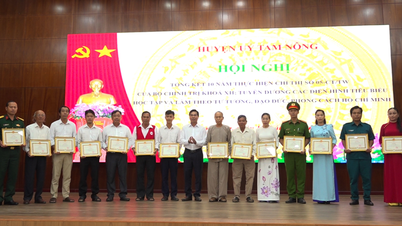

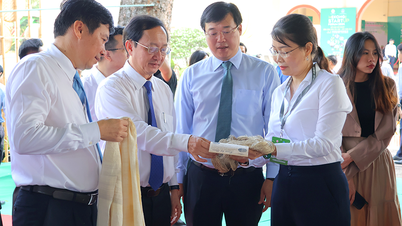
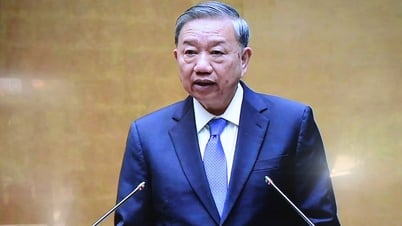











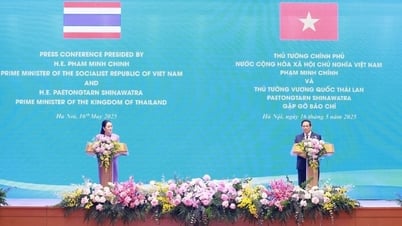





















































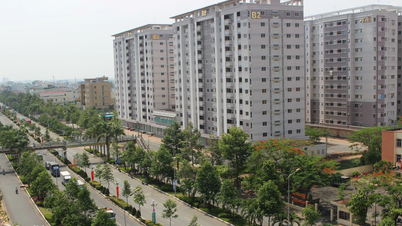










Comment (0)